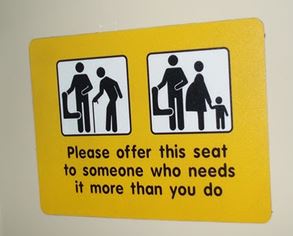Self-centered vs Other-centered
Let no debt remain outstanding, except the continuing debt to love one another, for he who loves his fellowman has fulfilled the law. The commandments, “Do not commit adultery,” “Do not murder,” “Do not steal,” “Do not covet,” and whatever other commandment there may be, are summed up in this one rule: “Love your neighbor as yourself.” Love does no harm to its neighbor. Therefore love is the fulfillment of the law.
Romans 13:8-10 (NIV)
Make no mistake about it: the apostle Paul wants us all to be in debt! Yes, to be continually in debt! Indeed, we owe it to God to be loving to others. The call to love our neighbors as ourselves is certainly an ethical standard that is pretty difficult to meet. In our humanness, we are instinctively focused on loving ourselves. We enjoy loving those that love us back or loving others when there is something in it for us. So in the end, we do not score very well with regards to living an other-centered life. In other words, we are more inclined toward self-centeredness as opposed to being other-centered. Yet the gospel compels us towards a lifestyle of other-centeredness. Indeed, the gospel makes us all slaves to such a “debt”. Being other-centered has got a lot to do with internalizing the truth that because Jesus Christ has loved us freely as demonstrated through His sacrifice at the cross, we are in turn, freed from living self-focused lives to love others freely, no matter what the “return on investment” is.

If you happened to take public transport a lot, you would be familiar with the efforts of the authorities to instill graciousness in our society. Campaigns after campaigns have been thought up to raise awareness among the public that there is a great need to put the needs of others first. Reserved seats on trains and buses have even been designated for four categories of people: the elderly, the disabled, parents with young children and pregnant ladies. Despite such efforts, there are still people caught on camera (caught on social media) who refuse to give up their seats even though the needy are standing right in front of them!
I suppose one of the keys toward a more other-centered lifestyle is to have an active imagination. To keep on imagining what it is like to be “the other party”. For example, if on the road, somebody is signaling to enter our lane, we might be more inclined to slow down and give way if we imagined the distress that the driver must be in; the fact that he is in the wrong lane. And as drivers, we all have been in the wrong lane before and especially if the road condition makes it hard to filter to the right lane, being in the wrong lane can be very unsettling. And when some kind soul slows down and allows you to cut in, it makes you want to do the dance of joy. So imagining things like that could go a long way in helping us to be a more gracious driver.
Closer to home, our church theme for the year has part of its focus to “love people.” The importance of loving people by being other-centered is reinforced by the fact that Paul reiterates this truth in Galatians 5:13-14. In there, Paul makes clear that true freedom is service, not self-centeredness. And the foundation to such freedom to serve is our freedom in Christ. Therefore, our life-long goal to be more Christ-centered should produce a more other-centered us. As we take aim at our theme for the year to love God and love people, let us take stock of how much we have been impacted by the life of Christ by assessing how other-centered we are. I know most of us, including myself is certainly not quite there yet, but let us take heart knowing that the gospel not only compels us, but also empowers us to live other-centered lives.
